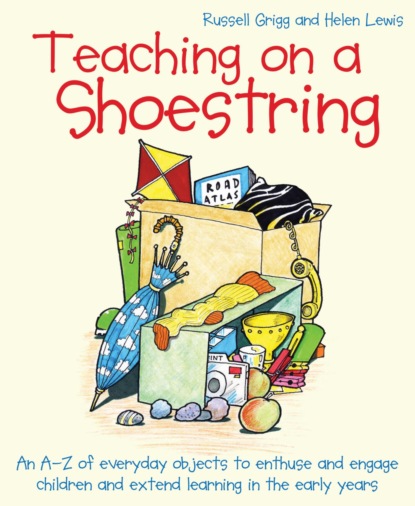Umfang 250 Seiten
0+
Teaching on a Shoestring
Über das Buch
In Teaching on a Shoestring: An A to Z of everyday objects to enthuse and engage children and extend learning in the early years, Russell Grigg and Helen Lewis explore the educational value of familiar objects and suggest practical activities to help develop young learners' cross-curricular skills. We take many everyday objects for granted. But in a time of ever-tightening school budgets these objects can be invaluable in affording low-cost, high-impact opportunities for learning. With these value-for-money principles in mind, Russell and Helen have packed this practical A to Z handbook to the brim with fun facts, inspiring ideas and exciting activities to help teachers make the best use of familiar objects as launch pads for effective learning. Underpinned by solid theory, Teaching on a Shoestring investigates the learning potential of twenty-six inexpensive, readily available resources from apples to ice cubes to zebra-patterned fabric and shows how they can be exploited to develop in young learners the four skills widely regarded as essential in the twenty-first century: communication, collaboration, critical thinking and creativity. The book is organised into two parts: covering theory, then practice. In Part 1 the authors examine the nature of an object-rich learning environment and discuss the benefits of enquiry-based learning, in which the emphasis is upon promoting collaboration, dialogue and higher-order thinking in real-world contexts. In Part 2 the learning opportunities around the twenty-six objects are laid out in detail to illustrate how they can be put into practice. While the book focuses on object-based pedagogy employed with the under-sevens age category, many of the principles can also be applied with older children. There is a common format for the enquiry into each object, arranged into the following sections: In a nutshell key background information about the object in its broader context; Did you know? interesting facts about the object; Ready key vocabulary, resources and health and safety factors to consider; Steady learning goals and intentions; Go activities which show how teachers can develop the four skills of communication, collaboration, critical thinking and creativity around the object; Other ideas follow-up cross-curricular ideas; and Find out more websites and other references for further information. Suitable for early years educators and anyone who works with young children.
